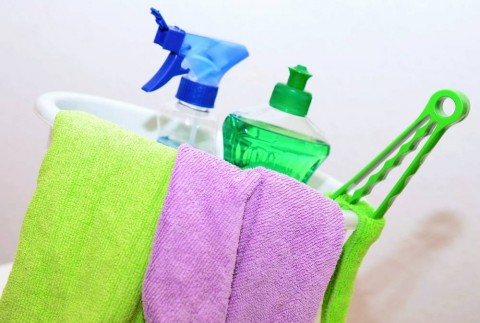News
Green Cleaning for Businesses in 5 steps
Cleaning can be a messy task, but that doesn't mean you need harsh chemicals to get every job done. Bleach, ammonia, solvents, oven cleaners, antimicrobial soaps and petroleum based cleaners are examples of cleaning products that can be harmful to employees, clients and the environment. Switching to green products does not have to be complicated or costly. The majority of daily cleaning tasks can be accomplished with cleaners made from vinegar, baking soda, borax, vegetable soap, or other water-based solutions. The diversity of products claiming to have environmental benefits can be overwhelming, so read on to learn our 5 recommendations for green cleaning.
5 steps to green your cleaning routine:
1. Everyone has to start somewhere
If you've decided you want to use cleaning products that are safer for yourself, your employees, customers and the planet, purchase green cleaning products or make your own. To choose which products to buy, find ones that have been through strict third-party certifications such as Green Seal, EPA Safer Choice, Chlorine Free Products Association, UL Ecologo, or Greenguard.
Avoid products with warning labels on them including danger, poison, or caution. And if a product does not list its ingredients but makes lofty environmental claims, that might be a sign to pass.
2. Recognize greenwashing
Greenwashing
When a product, service or company practice is marketed with environmental benefits that are untrue or misleading.
To trick clients into purchasing their products, companies will make claims to appear good for the environment. They use the color green, pictures of plants or animals, and trigger words such as natural, eco-friendly, bio-based, toxin-free, or recyclable that do not mean anything without context. Avoid greenwashing by reading the ingredients and understanding what is harmful. In general, avoid petroleum-based ingredients and products with warning labels. If you use a cleaning service that makes environmental claims, study the products they use and look for greenwashing.
3. Pare down your products
Find one multipurpose green cleaner that will work throughout your facility, or just buy a couple different cleaners. Having fewer products will reduce confusion on which one to use, and will simplify their storage and restocking. Also, some green cleaners can be purchased in a concentrated form to be diluted onsite as needed, minimizing the volume of products that need to be stored, and allowing you to refill cleaning bottles instead of purchasing new.
4. Reduce waste
To reduce waste, use washable and reusable cloth towels, mops, brooms and dusters. Avoid wipes, paper towels, sponges and other disposable or single-use products. Purchase cleaning tools that are made from recycled materials. Refill containers by purchasing in bulk.
5. Safe disposal
Don't stockpile cleaning products. A rule of thumb is if the product is not used within 6 months, dispose of it safely. Disposal options differ depending on the type and quantity of waste. Most green cleaning supplies do not need to be disposed of as hazardous waste, while traditional bleaches, degreasers, and the like are hazardous waste that need special disposal. For more information, visit https://clarkgreenbiz.com/green-toolkit/hazardous-materials.
Food service industry
It is important to understand health codes and regulations that may apply to your industry before switching to green cleaning supplies. For the food service industry, health code requires using a chemical sanitizer such as bleach, quaternary ammonium or iodine to sanitize surfaces that make contact with food. This is a requirement and cannot be substituted with green cleaning alternatives, but for cleaning areas that do not make contact with food (i.e. restrooms, windows, carpets, entryways, offices, etc.) businesses are encouraged to use green cleaning supplies.
Other things to consider
- Replace canned air with hand-held vacuums or manual blowers. Find out why here: https://www.portlandoregon.gov/sustainabilityatwork/article/535800
- Use regular soap for hand-washing. Scientific evidence shows that antimicrobial soaps are actually harmful to long-term public health. Learn more by reading this article published by the FDA: https://www.fda.gov/consumers/consumer-updates/antibacterial-soap-you-can-skip-it-use-plain-soap-and-water
- Handmade cleaners are a great option for offices. Learn more about handmade cleaners here: https://www.portlandoregon.gov/sustainabilityatwork/article/535810
- Stockpiling old, dusty cleaning solutions you no longer need? Don't take the risk, dispose of products that haven't been used within 6 months.
- Find safer alternatives to toxic chemicals on the Washington State Department of Ecology's website: https://ecology.wa.gov/Regulations-Permits/Guidance-technical-assistance/Preventing-hazardous-waste-pollution/Safer-alternatives





